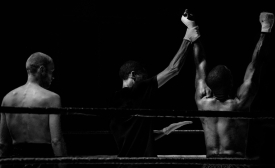united states
As the new Chairman of the Broadcasting Board of Governors, James K. Glassman is the U.S. government's number one broadcaster. An accomplished journalist, Mr. Glassman oversees all U.S. government non-military international broadcast channels. The BBG Chairman provided his unvarnished observations to Worldcasting this week.

A look at the U.S. State Department's ECA initiatives during Karen Hughes' tenure.
From an online discussion at Development Gateway, Jul 2, 2007:
This is the first in a series from Carrie Walters, Pickering Fellow at the U.S. State Department and Master's Candidate in Public Diplomacy at USC's Annenberg School for Communication.
Last March I wrote an essay for the Center's "Public Diplomacy Press and Blog Review" identifying what I believe to be a key problem with our nation's public diplomacy -- a lack of emphasis on informing people overseas about our nation's history. One thing that makes this an attractive approach is that it can be done for the most part with infrastructure that we already have in place. We don't need to reinvent the wheel.
The many justifications for U.S. public diplomacy policy range from the concrete to the abstract. In forums such as this Web site, public diplomacy is described as both a specialized instrument for foreign policy promotion, as well as a symbol of the lofty ideals of promoting international dialogue and cultural understanding. Yet the instrumental aspect of public diplomacy typically boils down to the amplification of United States ethos.







